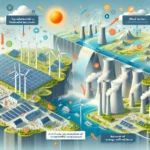Climate change and its effects on agriculture have become increasingly prevalent topics in IELTS Writing Task 2 essays. As a key global issue, this subject frequently appears in exam questions, challenging test-takers to demonstrate their understanding and writing skills. In this comprehensive guide, we’ll explore sample questions, provide model essays, and offer valuable insights to help you excel in your IELTS Writing Task 2.
Analyzing the Topic and Its Relevance
The relationship between climate change and agriculture is a critical issue that has gained significant attention in recent years. As such, it has become a popular topic in IELTS Writing Task 2 questions. Based on our analysis of past exams and current trends, we predict that this theme will continue to appear regularly in future tests.
Let’s examine some potential question types you might encounter:
- Discuss the main effects of climate change on global agriculture and suggest possible solutions.
- Some people believe that climate change will have a positive impact on agriculture in certain regions. To what extent do you agree or disagree with this statement?
- Compare the challenges faced by farmers in developing countries and developed countries due to climate change.
For this guide, we’ll focus on the first question type, as it allows for a comprehensive discussion of the topic.
Sample Question and Analysis
Climate change is having a significant impact on agriculture worldwide. What are the main effects of this phenomenon on farming, and what measures can be taken to address these challenges?
Question Analysis:
This question requires you to:
- Identify the main effects of climate change on agriculture
- Propose measures to address these challenges
It’s crucial to cover both aspects equally in your essay. Ensure that you provide specific examples and details to support your points.
Model Essays
Band 8-9 Essay Sample
Climate change has emerged as one of the most pressing challenges facing global agriculture today. This phenomenon is causing significant disruptions to farming practices and food production worldwide. In this essay, I will discuss the primary effects of climate change on agriculture and propose potential measures to mitigate these impacts.
The most notable effects of climate change on farming are alterations in temperature and precipitation patterns. Rising global temperatures are leading to more frequent and severe heatwaves, which can damage crops and reduce yields. For instance, the 2018 European heatwave resulted in substantial losses in wheat and maize production across the continent. Additionally, changing rainfall patterns are causing more frequent droughts in some regions and flooding in others, both of which can devastate agricultural productivity. The prolonged drought in California from 2012 to 2016 serves as a stark example of how water scarcity can impact farming communities and food security.
Another significant impact is the increased prevalence of pests and diseases. Warmer temperatures allow certain pests to survive in areas where they were previously unable to thrive, leading to new challenges for farmers. For example, the coffee berry borer, a major pest for coffee plantations, has been able to expand its range to higher altitudes due to rising temperatures, threatening coffee production in countries like Colombia and Ethiopia.
climate-change-impact-agriculture|Climate Change Impact on Agriculture|Image depicting the impact of climate change on agriculture, showing withered crops in a drought-stricken field, with a cracked earth surface and a scorching sun in the background.
To address these challenges, a multi-faceted approach is necessary. Firstly, investing in research and development of climate-resilient crop varieties is crucial. Scientists are working on developing drought-resistant and heat-tolerant crops that can withstand extreme weather conditions. For instance, the development of flood-tolerant rice varieties in Southeast Asia has helped farmers maintain productivity in flood-prone areas.
Secondly, implementing sustainable farming practices is essential. This includes techniques such as conservation tillage, crop rotation, and agroforestry, which can help improve soil health, conserve water, and reduce greenhouse gas emissions. The adoption of these practices in countries like Brazil has shown promising results in increasing farm resilience to climate change.
Finally, governments and international organizations must provide support to farmers through education, financial assistance, and infrastructure development. This could include offering training on climate-smart agriculture techniques, providing access to weather forecasting technologies, and developing irrigation systems to manage water resources more effectively.
In conclusion, climate change poses significant challenges to global agriculture, ranging from altered weather patterns to increased pest pressures. However, by investing in research, adopting sustainable practices, and providing support to farmers, we can work towards building a more resilient and sustainable agricultural sector capable of withstanding the impacts of our changing climate.
(Word count: 409)
Band 6-7 Essay Sample
Climate change is having a big impact on farming around the world. In this essay, I will discuss the main effects of climate change on agriculture and suggest some ways to deal with these problems.
One of the biggest effects of climate change on farming is changes in weather patterns. Temperatures are going up, which can cause problems for crops. For example, some plants might not grow well when it’s too hot. Also, rainfall is changing in many places. Some areas are getting too much rain, which can cause flooding and damage crops. Other places are not getting enough rain, leading to droughts. These changes make it harder for farmers to grow food.
Another important effect is that pests and diseases are becoming more common. As the weather gets warmer, some insects that harm crops can survive in new areas. This means farmers have to deal with new pests they didn’t have before. For example, some types of beetles that eat crops are now found in places where they couldn’t live before because it was too cold.
To address these challenges, there are several things we can do. First, scientists can work on developing new types of crops that can grow better in hot or dry conditions. This could help farmers adapt to the changing climate. Second, farmers can use different farming methods that are better for the environment. For example, they can rotate their crops or use less water when they water their fields.
The government can also help by providing support to farmers. This could include giving them information about how to deal with climate change and helping them get new equipment or technology. For instance, the government could help farmers get better irrigation systems to use water more efficiently.
In conclusion, climate change is causing serious problems for agriculture, including changing weather patterns and more pests. However, by developing new crop types, using better farming methods, and providing support to farmers, we can try to reduce these negative effects and ensure that we can still produce enough food in the future.
(Word count: 329)
Key Writing Tips
When writing about climate change and agriculture in IELTS Task 2, keep the following points in mind:
For Band 8-9:
-
Use sophisticated vocabulary: Incorporate advanced terms related to climate change and agriculture, such as “mitigation,” “adaptation,” “resilience,” and “sustainable practices.”
-
Provide specific examples: Include real-world cases or studies to support your arguments, demonstrating a deep understanding of the topic.
-
Use complex sentence structures: Employ a mix of compound and complex sentences to show advanced language proficiency.
-
Maintain coherence: Ensure smooth transitions between paragraphs and ideas, creating a well-structured and logical essay.
For Band 6-7:
-
Use appropriate topic-specific vocabulary: Incorporate relevant terms related to climate change and agriculture, but keep them at a more accessible level.
-
Provide general examples: Include examples to support your points, but they can be more general than those in higher band essays.
-
Use a mix of sentence structures: Combine simple and compound sentences, with some attempts at complex structures.
-
Maintain a clear structure: Ensure your essay has a clear introduction, body paragraphs, and conclusion, with some attempt at paragraph cohesion.
Essential Vocabulary
Here are some key terms to remember when writing about climate change and agriculture:
-
Adaptation (noun) /ˌædæpˈteɪʃən/ – The process of changing to suit different conditions.
-
Mitigation (noun) /ˌmɪtɪˈɡeɪʃən/ – The action of reducing the severity or seriousness of something.
-
Resilience (noun) /rɪˈzɪliəns/ – The ability to recover quickly from difficulties.
-
Sustainable (adjective) /səˈsteɪnəbəl/ – Able to be maintained at a certain rate or level.
-
Drought (noun) /draʊt/ – A prolonged period of abnormally low rainfall.
-
Crop yield (noun phrase) /krɒp jiːld/ – The amount of crop produced per unit of land.
-
Agroforestry (noun) /ˌæɡrəʊˈfɒrɪstri/ – A land use management system that combines trees with crops or livestock.
-
Conservation tillage (noun phrase) /ˌkɒnsəˈveɪʃən ˈtɪlɪdʒ/ – Any method of soil cultivation that leaves the previous year’s crop residue on fields to reduce soil erosion and runoff.
-
Food security (noun phrase) /fuːd sɪˈkjʊərəti/ – The state of having reliable access to a sufficient quantity of affordable, nutritious food.
-
Biodiversity (noun) /ˌbaɪəʊdaɪˈvɜːsəti/ – The variety of plant and animal life in a particular habitat or on earth as a whole.
Conclusion
The impact of climate change on agriculture is a crucial topic that is likely to continue appearing in IELTS Writing Task 2 essays. By understanding the key issues, practicing with sample questions, and utilizing appropriate vocabulary and structures, you can improve your ability to write compelling essays on this subject.
Remember to analyze the question carefully, plan your response, and practice regularly to enhance your writing skills. As you prepare, consider practicing with these additional potential questions:
- How can technology help farmers adapt to the challenges posed by climate change?
- Discuss the potential long-term consequences of climate change on global food security.
- Compare the effectiveness of government policies and individual actions in addressing climate change’s impact on agriculture.
We encourage you to try writing an essay on one of these topics or the main question discussed in this guide. Share your practice essay in the comments section below for feedback and further improvement. This active approach to learning will help you build confidence and skills for your IELTS Writing Task 2.


